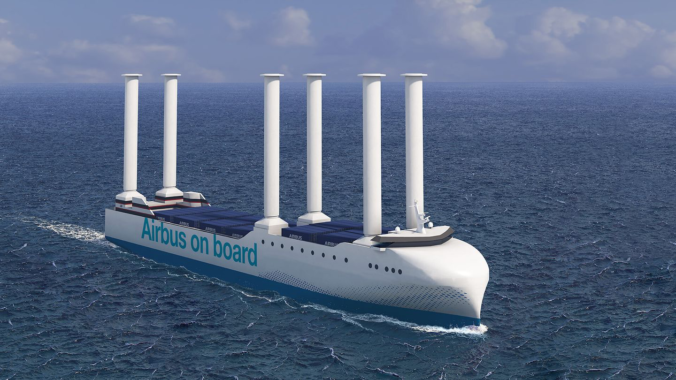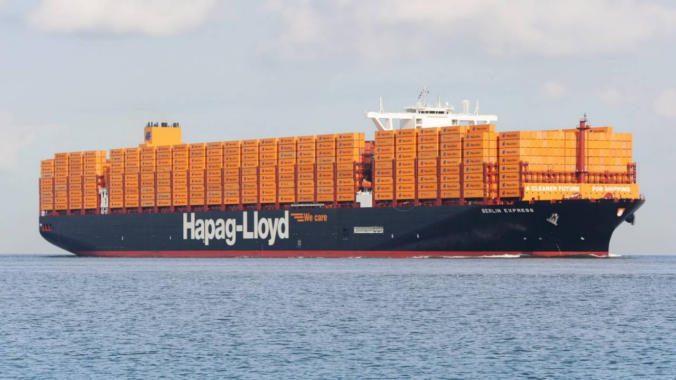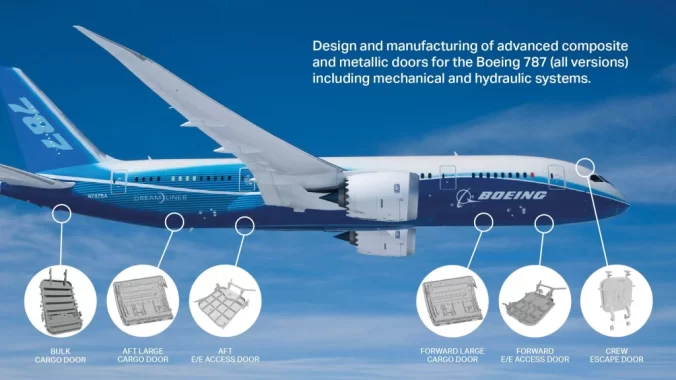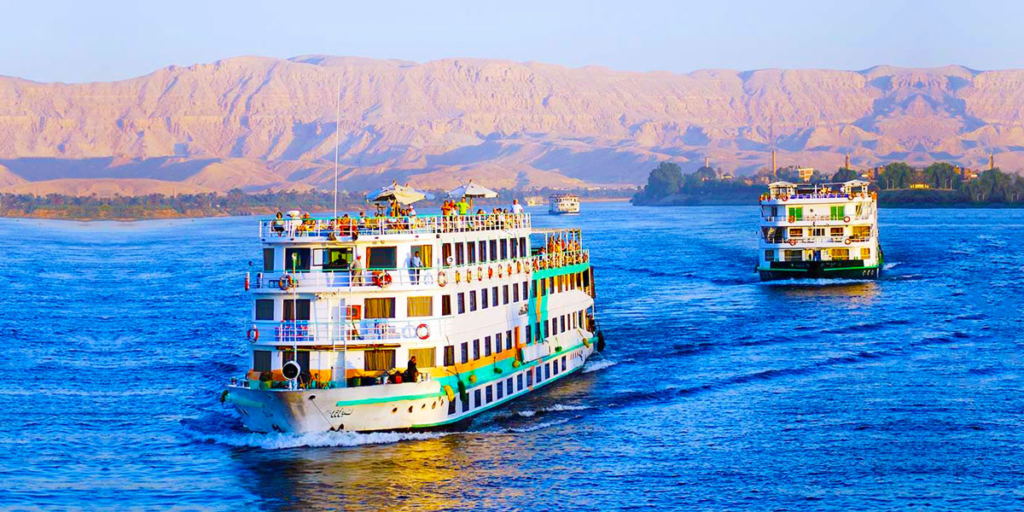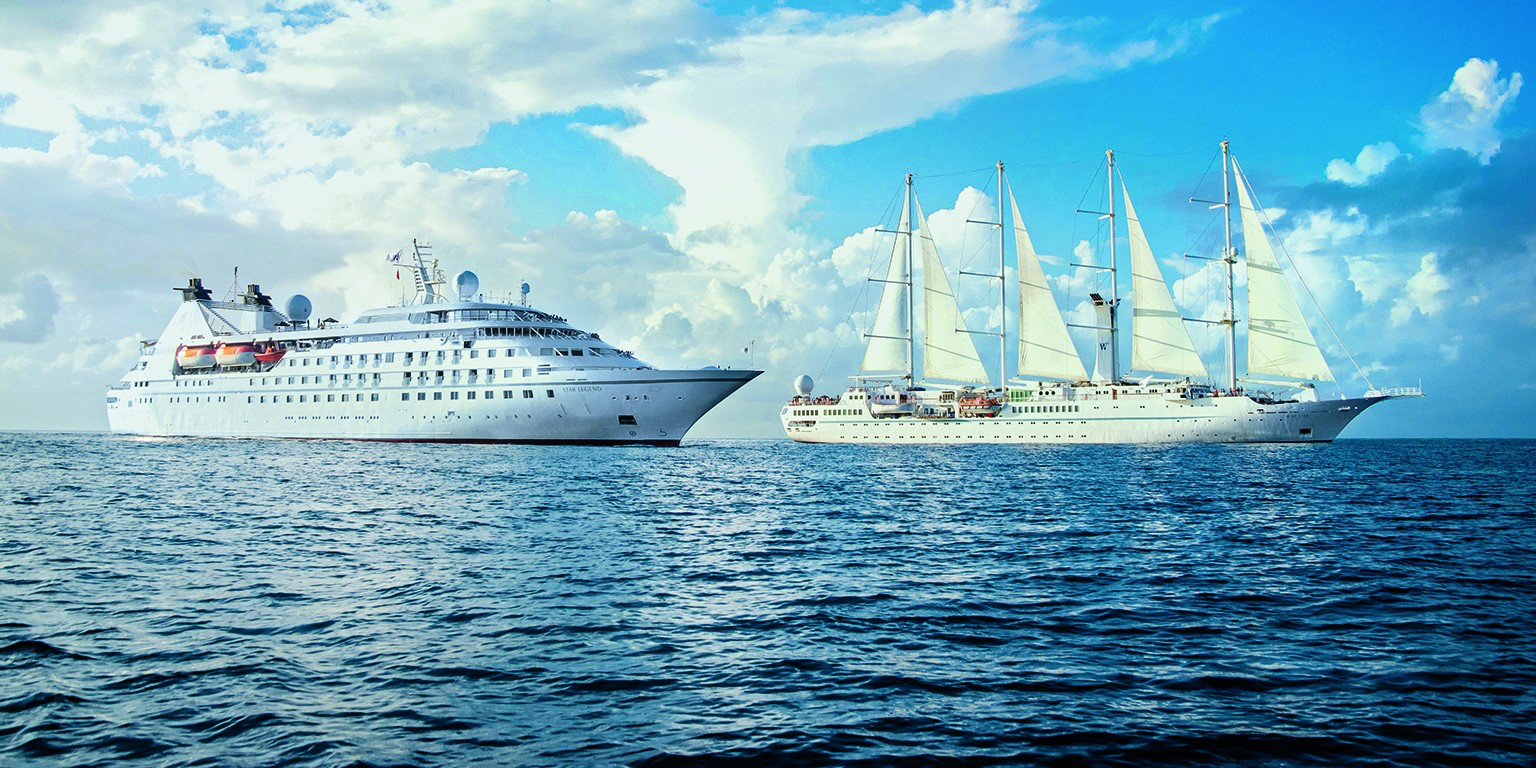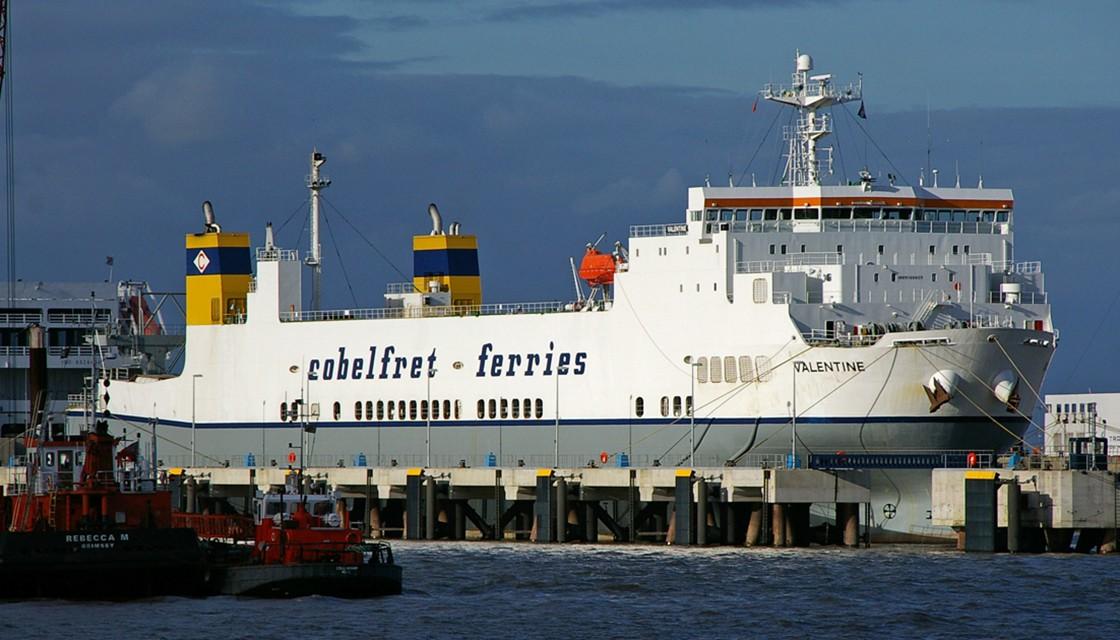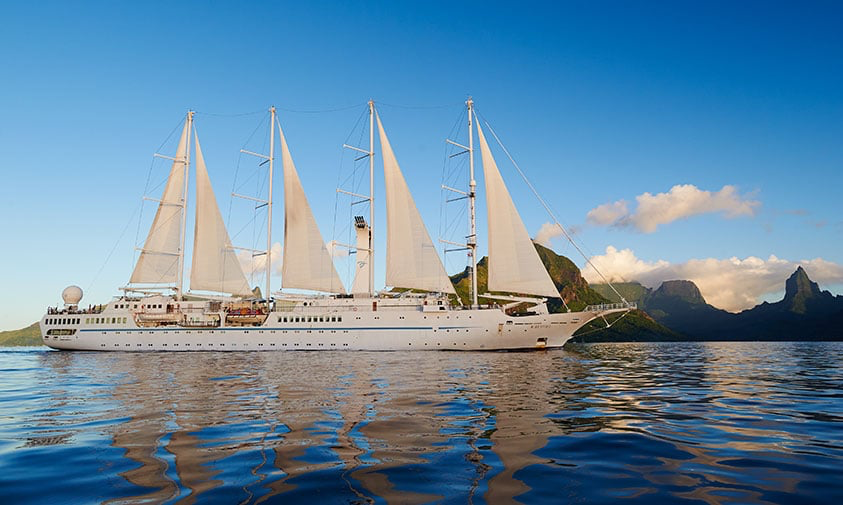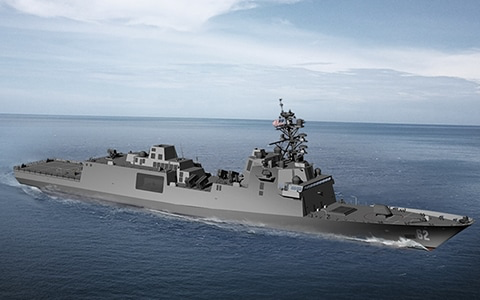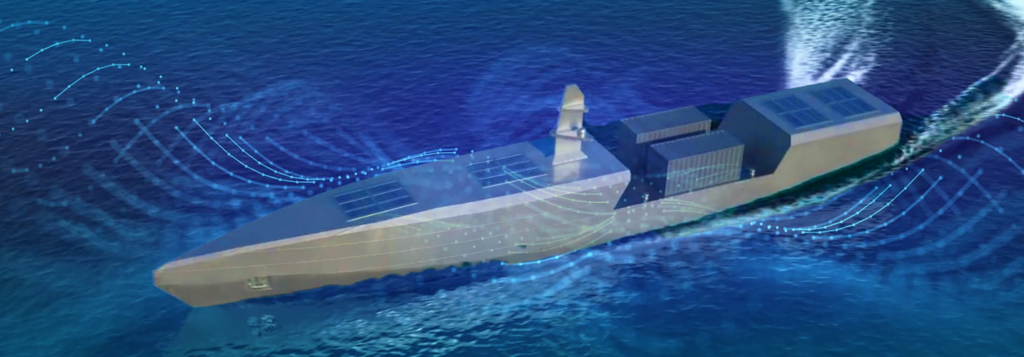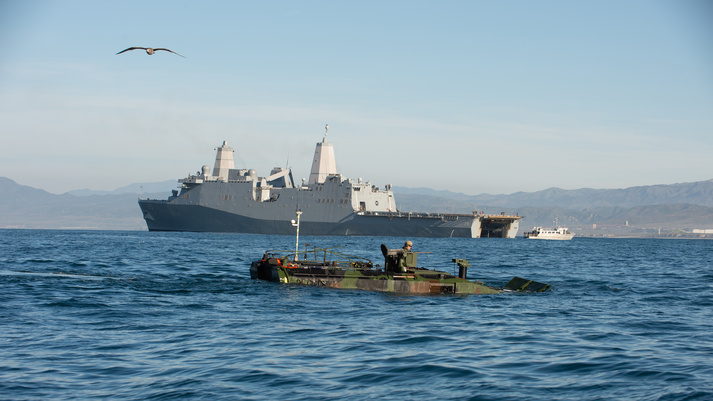Seattle, Washington, July 16, 2021 – U.S. headquartered small ship cruise line Windstar Cruises has resumed cruising this week in French Polynesia/the Islands of Tahiti with vaccinated guests + crew aboard the line’s 148-passenger Wind Spirit sailing ship. Half of the line’s six yacht fleet is now back in the water cruising.
To celebrate Wind Spirit’s return, the line has added free drinks to its already enticing bundled pricing.
Windstar offers a convenient Air + Hotel package from Los Angeles International Airport that includes the round trip Air Tahiti Nui flight from Los Angeles, pre-cruise accommodations and a post-cruise day room, ground transfers in Tahiti, and a seven, 10, or 11 night boutique cruise in French Polynesia. Now on cruise vacations including air and hotel booked during the promotional period ending July 30, 2021, guests also receive the promise of a free beverage package (with unlimited select spirits, wine, beer, cocktails, and minibar items), guaranteeing an extra Mai Tai or three beneath a palm tree. If guests don’t imbibe, they can alternately choose shipboard credit to put towards other experiences, like a relaxing onboard spa treatment or shore excursions such as SCUBA diving, reef snorkeling, or even harvesting Tahitian black pearls.
Windstar typically sails year-round from Tahiti, where cruises take place on Wind Spirit, a 148- guest motorized sailing yacht specifically designed for the region and capturing the South Pacific trade winds in its billowing sails. However, Windstar’s reimagined, new all-suite Star Breeze yacht carrying 312 guests will begin sailings in the region on September 19 and will remain on a limited engagement in Tahiti until March of 2022, giving guests a unique chance to sail on the larger, more amenity-intensive yacht in gracious ocean view 277 square feet suites. Windstar offers guests a complimentary private event on their Tahiti cruises: a private beach party and locally sourced feast on one of Bora Bora’s tiny motus, followed by a kinetic fire-dancing performance. It is available on all sailings/both yachts.
Windstar is returning to operations in a phased manner, with its fleet of six yachts debuting on various dates through November, while requiring vaccines of all passengers amongst a host of health and safety precautions including testing, social distancing, masks, and high-tech air filtration. On June 19, Windstar’s Wind Star yacht resumed revenue operations in Greece, and on July 10, Windstar’s Star Breeze began sailing in the Caribbean, both with vaccinated guests and crew.
Windstar has plans to resume sailing on the following yachts in 2021 with vaccinated guests + crew:
Wind Surf – August 8, 2021 – Mediterranean
Star Legend – September 4, 2021 – Northern Europe
Star Pride – November 3, 2021 – Caribbean
For more details on Windstar Cruises, visit www.windstarcruises.com
